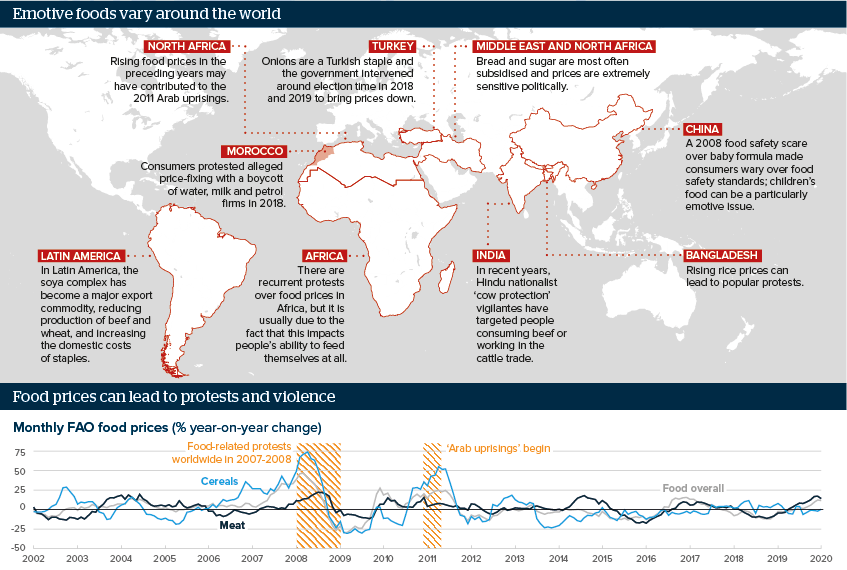Food can be a politically volatile issue
Concerns that climate change may affect food merit greater focus on how this could produce instability
Source: FAO; Oxford Analytica
Outlook
Concerns that climate change may reduce food production and trigger wider conflicts has elicited research into the relationship between food and political instability in recent years.
Some studies point to absolute deprivation (ie, the prospect of food shortages causing actual hunger), others on relative deprivation (eg, the share of income spent on food) and others on group-level explanations and state action, such as either that elites control access to certain foods or the state fails to cushion citizens from the effect of price rises.
Certain foods are emotive and can trigger reactions in many countries. Bread is one in many Middle Eastern countries, onions another in India and Turkey.
Impacts
- There are fears that soya expansion in Brazil will worsen Amazon deforestation.
- In Sudan, rising bread prices triggered protests in 2018, which ultimately led to the ouster of President Omar al-Bashir.
- In India, people associated with beef production and consumption will remain vulnerable to cow protection vigilantes.
